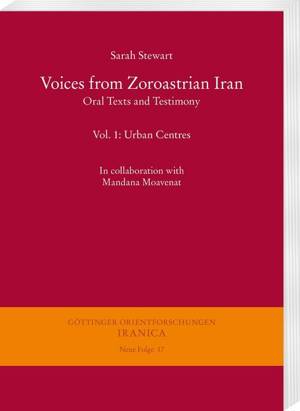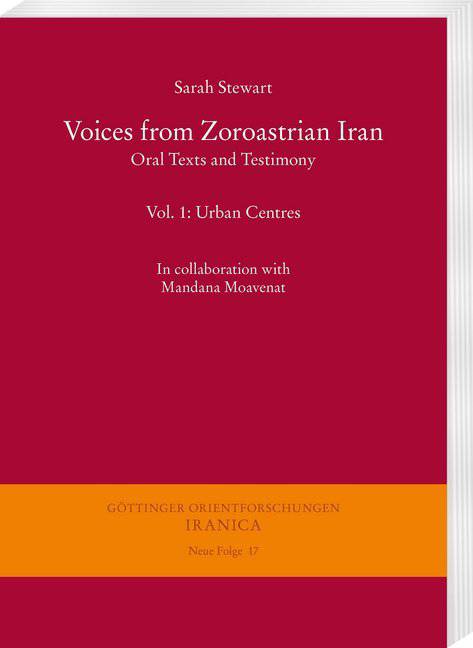
- Retrait gratuit dans votre magasin Club
- 7.000.000 titres dans notre catalogue
- Payer en toute sécurité
- Toujours un magasin près de chez vous
- Retrait gratuit dans votre magasin Club
- 7.000.0000 titres dans notre catalogue
- Payer en toute sécurité
- Toujours un magasin près de chez vous
Description
Voices from Zoroastrian Iran (Volumes I and II) is the result of an oral studies research project that maps the remaining Zoroastrian communities in Iran and explores what has happened to their religious lives and social structures since the Revolution of 1979 and the establishment of the Islamic Republic. Interviews included in Volume 1 are with Zoroastrians from the urban centres of Tehran, Kerman, Ahvaz, Shiraz and Esfahan. Participants refer to community leaders, historical figures, local events, teachers and religious texts that have shaped their views and understanding of the religion. They also address the impact of recent history upon their lives. The religion itself is presented as understood by those interviewed, drawn largely from the interpretations of Iranian scholars and scholar-priests, as opposed to those of predominantly western scholars. A chapter in the book is devoted to a survey of the main Iranian Zoroastrian religious observances as well as some popular customs. As a result of the new Constitution, the return to shari 'a and the eight-year war with Iraq that followed the Revolution, the relationship between Zoroastrians and the state changed. The new political environment began to shape the religious and social identities of the next generation through Zoroastrian institutions such as the anjomans (councils) as well as those established by the government of the Islamic Republic. The interviews for this book span a period of living memory that reflects both pre- and post-revolutionary Iran. The views expressed are informed by the changes that took place during that time and throw light on subjects as diverse as education, emigration, conversion and religious reform.
Spécifications
Parties prenantes
- Auteur(s) :
- Editeur:
Contenu
- Nombre de pages :
- 440
- Langue:
- Anglais
- Collection :
- Tome:
- n° 17
Caractéristiques
- EAN:
- 9783447111294
- Date de parution :
- 07-11-18
- Format:
- Livre broché
- Format numérique:
- Trade paperback (VS)
- Dimensions :
- 170 mm x 240 mm
- Poids :
- 771 g

Les avis
Nous publions uniquement les avis qui respectent les conditions requises. Consultez nos conditions pour les avis.






